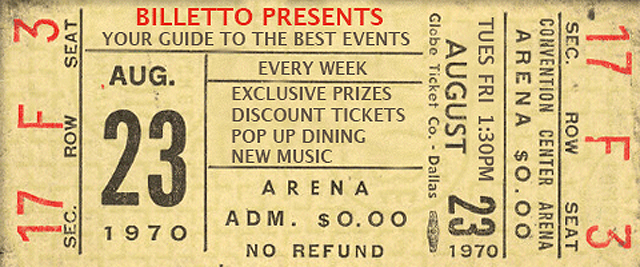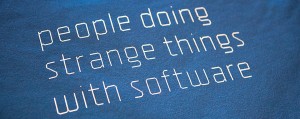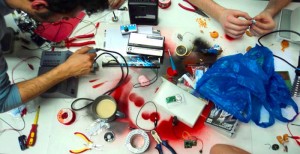The web has made the word ‘curation’ slightly ambiguous. More than a decade’s development of the internet has seen online data become content thanks to our increased use and dependence on it. This reflection of cultural behavior can only be supported by software innovation, inevitably developing alongside the way we use the internet, as applications and platforms not only shape our interests, but our day-to-day lives. Interesting, when considering not only how users effect technological development but how that tech in turn determines social interactions both online and ‘in real life’.
As a tool to store and provide data, the web aggregates everything –which often ends up devaluing content. What this means for back-end developers of useful, contemporary online platforms is the challenge to create a software structure that not only allows for the most efficient navigation of this information but that can also frame online content in the best context. Platforms like Tumblr, Blogger, even bebo and MySpace, do just that but a good blog gets followers if it delivers good content. Such an empowering transformation from consumer to user/contributor effectively decentralizes conventional systems of information organisation, producing opportunities for new kinds of social practice. But it also makes everyone a curator.
For those interested and involved, this is a great thing. The positive development of social community is a by-product of a consistent, quality content delivery, as is the personal development of various skills. But the majority of this social progression happens online, in that virtual space between forums, pin boards, feeds and streams, which is a shame because taking the structure of content sharing and applying it to the ‘real world’ makes a lot of sense.

The recent growth of smartphone apps like Billetto and YPlan offer a 100 per cent mobile “curated shortlist” of “handpicked happenings”, giving the app user the opportunity to spontaneously and easily attend an event in their area. By collecting and offering information about upcoming events filtered to suit an individual’s interest, these platforms bridge those virtual and the physical systems of social behavior –effectively curating culture. The simple interface and ease in which you can find an event and immediately attend it only makes the applications more accessible, and this, on top of the often affordable ticket prices result in an incredibly popular system of ‘real life’ experience provision.
There’s no doubt that good curation is helpful and useful in a society of information-overload. The observation and appreciation of coherent themes, a focused voice and clear, efficient connections result in a successful point from which influence can be attained through sharing a collection of selected information. What’s most exciting though is that rather than creating links between parts of the World Wide Web, users are encouraged to make connections in the actual wide world. It is fascinating to see how our social behavior is conditioned by our physically static online activity, but equally as good to see how these virtual structures can give us some really fun experiences IRL as well. **















